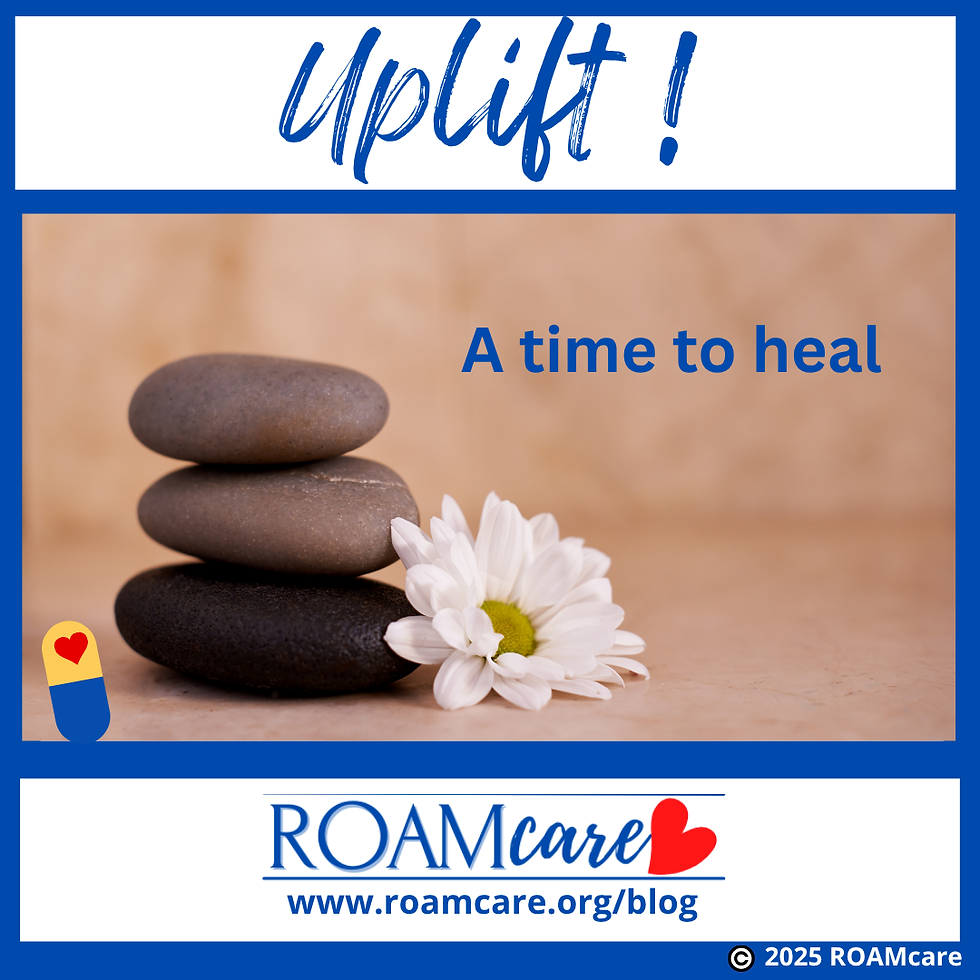Born Helpers
- roamcare
- Apr 30, 2025
- 3 min read
Pope Francis said, “Rivers do not drink their own water; trees do not eat their own fruit; the sun does not shine on itself; and flowers do not spread their fragrance for themselves. Living for others is a rule of nature. We are all born to help each other. No matter how difficult it is …. life is good when you are happy, but much better when others are happy because of you." It’s been said that is not an original thought of his and the saying can be traced to several other sources. That it is so fiercely debated online is interesting, especially in light that so many say they’ve heard it before. What is more interesting, is that so few seem to be interested in the message. Hear it, they may have. Heed it, few seem to have.
Original or not, on several occasions Francis said these words and expressed the sentiment that we are here solely for the benefit of others. Indeed, life is much better when others are happy because of you. He had people talking about serving others. We would do well to find a way to express that sentiment and live solely to help others and then speak of it often, encouraging others to do likewise.
In his book, Miracle on the River Kwai, Ernest Gordon told of many instances of others doing for others. Gordon, the former Presbyterian dean of the chapel at Princeton University, spent three and a half years as a prisoner of war in the notorious camps along the Kwai River in Thailand during World War II.
In the camps, death was a daily occurrence. Conditions were lower than subhuman and the prisoners’ attitudes were of the ‘every man for himself’ variety. In his book, Gordon writes of two events that changed his life and the lives and feelings of others throughout his camp. One was when a prisoner was discovered to have starved himself to death to provide rations to a dying friend. Another accepted the death penalty imposed by the guards for the alleged theft of a shovel when the guards threatened to kill all the members of a work party if the thief did not admit his guilt. One prisoner stepped forward, claiming to be the culprit so the other members of the group would be spared. Shortly after his execution, the shovel was found in its usual place, the tools having been miscounted.
In a biographical sketch of Gordon, researcher and Cana Academy fellow Joseph R. Wood wrote, “the men regained their fundamental human quality, a sense of wonder about truth, beauty, and goodness in a place utterly deprived of all three. They became men again, from the beasts they had become. … From the most basic acts of physical kindness, a culture emerged. Civilization returned along with faith.”
Years later, when Gordon was chaplain at Princeton, he explained what he learned from his time in the camps and how he came to become ordained a minister in the Church of Scotland. He said, “misery loves company, yes, but equally true, though harder to live by, is that misery’s company is love. God was in our midst, suffering with us.”
Because of the sacrifices of those few men in the prison camp, many others were served. Some by Ernest Gordon and by extension all those affected by those he affected with his writings, lectures, and homilies.
This is what Francis was telling us when he said, “We are all born to help each other. No matter how difficult it is.” The chances of most of us spending time in a prison or interment camp are low but the opportunities to make difficult choices, to make a sacrifice, to do with less so others have some, are many.
Another saying Pope Francis was fond of is, “The only time that we are allowed to look down upon others, is when we are offering to help them up.” What better way can there be than this to help each other, and not at all so difficult to do.





This is such a beautiful and necessary concept, a value of self-sacrifice for the greater good. In cultures so consumed by self-centeredness and managing personal images, this feels counter-cultural. But it is what you said: "They became men again from the beasts they had become....From the most basic acts of physical kindness, a culture emerged. Civilization returned along with faith." Humanity may be broken, but we've been created for better than we've become. We have within us, by the grace of God, the ability to love one another. This is an amazing blog, you all. Thank you.